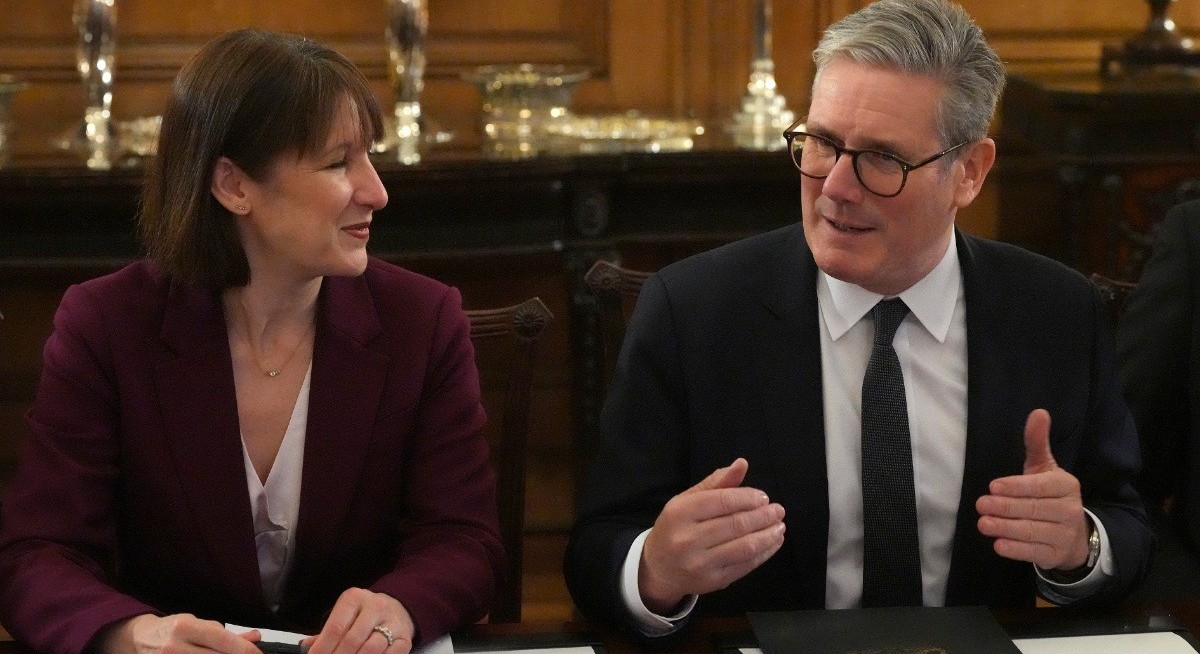Half of those surveyed by YouGov said Reeves’ budget would leave them and their family worse off, compared with 3% who said they would be better off. Only 3% said the economy was in a “quite good” state, with 0% saying it was in a “very good” state. Two-thirds said they expect it to get worse in the next 12 months.
The numbers show the scale of the challenge faced by Reeves and Prime Minister Keir Starmer to turn around their fortunes. Just 16 months into power, voters have turned on the Labour government after a series of missteps and policy U-turns that have left Starmer’s position in question.
YouGov found some individual measures were popular, such as reductions in energy bills, a freeze on rail fares and new taxes on mansions and gambling. However, a tax rise on workers and the expansion of family benefits were considered by a majority of voters the wrong thing to do at this time.
Taxing workers, by freezing thresholds for a further two years, contradicts Labour’s key election promise not to increase the tax burden on ‘working people’. A day later, the government announced it would drop a key measure from its flagship workers’ rights package that awarded day one protections against unfair dismissal, another manifesto pledge.
See also: Healey says Mandelson had no role in Palantir-UK data deal
Another pollster Luke Tryl of More in Common, said voters would be unimpressed by the chaotic run-up to the budget, and noted that Starmer and Reeves appeared to have prioritised the interests of their governing Labour Party and financial markets over voters.
“If they had three audiences, the public, the markets and the parliamentary Labour Party, they chose the last two because they matter most for short term-survival and they think they have got longer with the public,” Tryl said in an interview with Bloomberg.
Markets rallied after Reeves expanded her buffer against her fiscal rules though declined on Thursday in something of a reality check. Labour members of Parliament, especially those on the left of the party, expressed support for measures such lifting the two-child cap on benefits and higher taxes on the wealthy.
See also: UK house prices bounce back to hit record high, Halifax says
“Measures to help with the cost of living such as lowering energy bills are likely to be well received. Some Labour voters will also like scrapping the two child benefit cap,” said Ipsos’ Keiran Pedley. However, he cautioned that “tax rises are likely to be controversial, as we are already seeing a gradual increase in sentiment that taxes should be cut”.
“The wider issue for the government is that public negativity about the state of the economy and performance of the government is at such a level that it is very hard for them to get the benefit of the doubt,” Pedley said.
Leading economists also criticised the lack of a plan to boost economic growth in Reeves’ statement and warned that her proposals to repair the public finances may not be credible.
“It was a bits-and-pieces budget. There was no sense of reform or direction, I think is the most worrying part of this,” Paul Johnson, a former director of the Institute for Fiscal Studies, told Bloomberg Radio. “You look at what they have actually done so far, and net, it’s clearly had a negative impact on growth.”
“Most of the fiscal repair job has been put on hold for three years,” said Ruth Curtice from the Resolution Foundation, a left-of-centre think tank with close links to the Labour government. “Appearances can be deceiving,” she added, warning the country faced “plenty more bracing budgets”.
Uploaded by Tham Yek Lee




